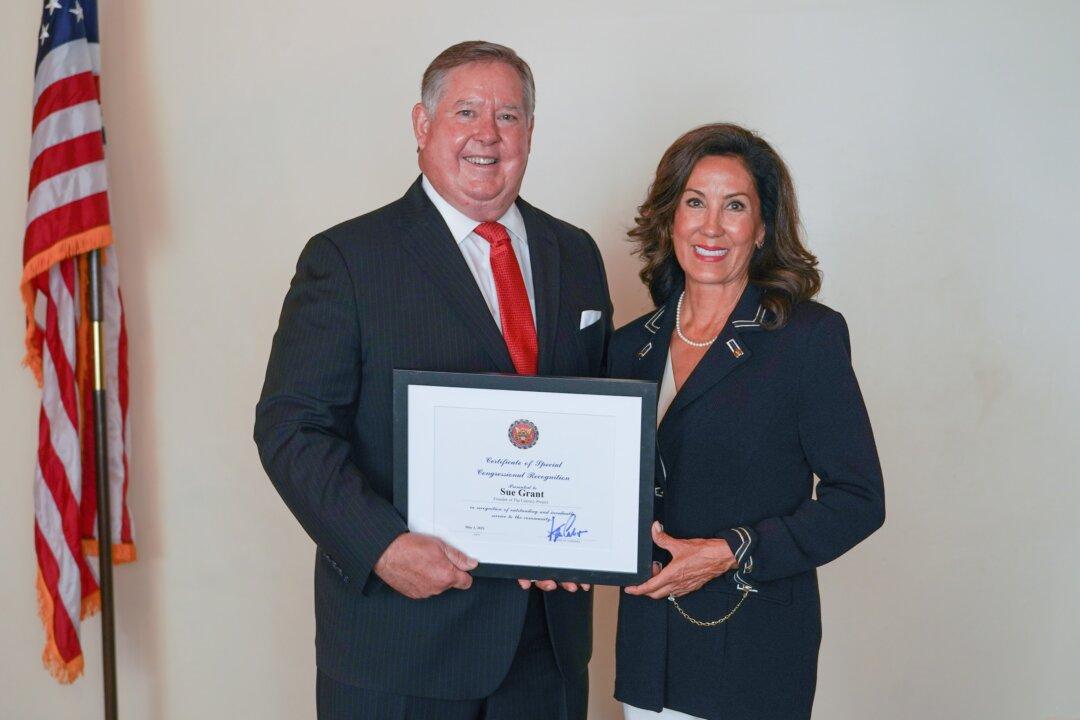NEWPORT BEACH, Calif.—The Literacy Project, headquartered in Newport Beach, California, has been awarded special congressional recognition for its work battling illiteracy in the community.
State Rep. Ken Calvert (R-42) presented the award on May 26 to Literacy Project Foundation founder and volunteer CEO Sue Grant during a ceremony held at The Mission Inn in Riverside.





